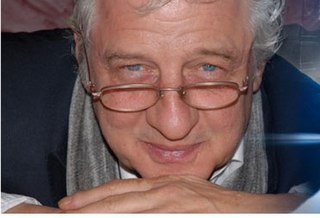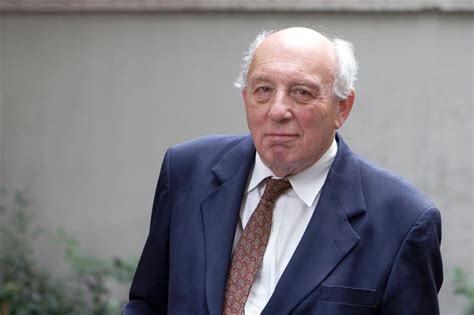A Quote by Wislawa Szymborska
Poets yearn, of course, to be published, read, and understood, but they do little, if anything, to set themselves above the common herd and the daily grind.
Related Quotes
I agree with you that it is important to examine our presuppositions, throughly and once for all, in order to establish something solid. For I hold that it is only when we can prove all that we bring forward that we perfectly understand the thing under consideration. I know that the common herd takes little pleasure in these researches, but I know also that the common herd take little pains thoroughly to understand things.
Of course, you don't have to have a degree to be rich. You just have to have ideas. Maybe having a degree sets you back, for it stuffs you into tick-tock [the daily grind of work], and perhaps that stifles your creative mind. But the fact is that many millionaires have few educational qualifications of any kind at all. However, they still have knowledge. The difference is, they have knowledge they can sell, and others have the "common knowledge" of tick-tock, which isn't worth as much, if anything at all.
I was well acquainted with the Calcutta literary circle since I was 17, when I lived in Bangladesh and published and edited a little magazine called 'Sejuti,' for which young poets from both Bengals wrote. If you look at my life, there is no question of using anyone for anything. I have only got banned, blacklisted and banished.
There are innumerable instances suggesting that modern intellectuals do not believe themselves, that they don't really believe what they say, that they say certain things only in order to assure themselves that they possess opinions and ideas that are different from those that are entertained by the common herd of men.
I've always been more than a little mystified by poets who seem to think talking to people as directly as possible is a bad thing. I mean, I don't want to set up a straw man here: I understand that for many poets - and for me, at times - writing truly means writing in a way that is difficult, simply because the poem is trying to grasp for something elusive. So the difficulty of the poem is just unavoidable, and not in any way artificially imposed. So "as possible" is the key part of the phrase above, I suppose.
Whatever the poets pretend, it is plain they give immortality to none but themselves; it is Homer and Virgil we reverence and admire, not Achilles or Aeneas. With historians it is quite the contrary; our thoughts are taken up with the actions, persons, and events we read, and we little regard the authors.
I tend to like the way poets form communities. Writing can be lonely after all. Modern life can be lonely. Poets do seem to be more social than fiction writers. This could be because of poetry's roots in the oral tradition - poetry is read aloud and even performed. I'm just speculating, of course. At any rate, because poets form these groups, they learn from one another. That is one of the best things about being a poet.







































